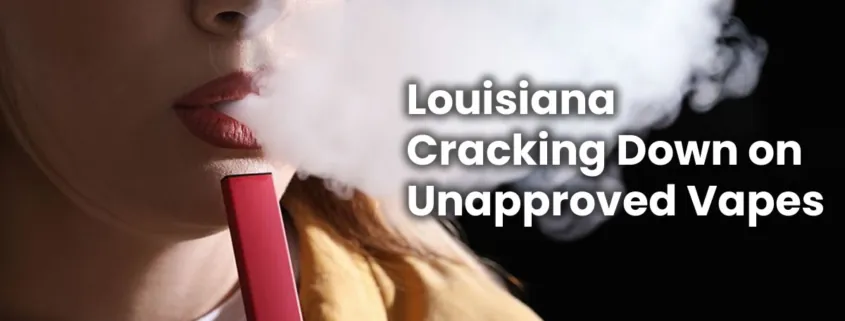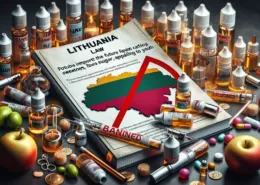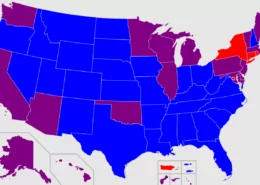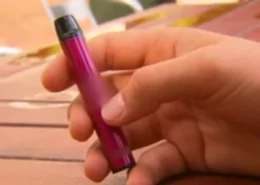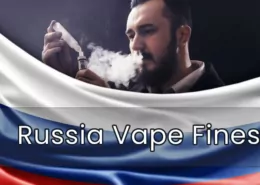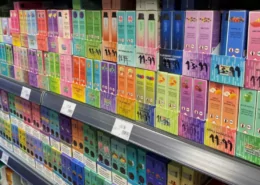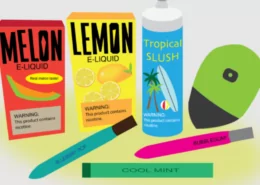How New Laws Are Cracking Down on Vapes in Louisiana
Louisiana recently passed legislation, Act 414 by Rep. Paul Hollis, R-Covington, imposing tight restrictions on nicotine vapes sold in the state. The wide-ranging law requires manufacturers to register all products and aims to combat youth vaping rates. As the new rules take effect, here is extended coverage of what residents and retailers need to know:
New Registry for Approved Vape Products
A central component of the law mandates that vape manufacturers register any products containing nicotine with the Louisiana Office of Alcohol and Tobacco Control (ATC). This registry will create an approved list of legal vapes that meet certain requirements.
To have a product included, manufacturers must submit an application providing concrete proof it either has recognition from the U.S. Food and Drug Administration (FDA) or is exempt from needing FDA authorization.
Starting November 1st, only vapes officially registered on Louisiana’s approved list can be legally sold in stores statewide. Retailers found selling unlisted nicotine vapes during compliance checks face fines up to $50 per offense.
Why Target Youth-Marketed Vapes
A major motivation behind the law is combating the rise in vaping among teens and preventing addiction.
Critics argue many disposable vape products are intentionally designed and marketed to appeal to underage users, citing the proliferation of concealable devices, kid-friendly flavors (fruit, dessert, candy), unverified online sales, and influencer promotions.
Banning all vapes not approved by the ATC aims to significantly reduce availability of products like fruit-flavored disposables (Puff Bar, Elf Bar) that health advocates say overtly target youth. Limiting access is ultimately expected to curb addiction rates among teens.
Path to Federal Approval
Given the tight new restrictions, how can vape manufacturers get products approved for legal sale in Louisiana? They must provide evidence to the ATC that the vape:
- Was on the U.S. market prior to August 2016 and the manufacturer has pending FDA application for marketing order
- Currently has an active application submitted to the FDA for a marketing order
- Is exempt from needing to secure an FDA marketing order
- Has received full Premarket Tobacco Product Application (PMTA) marketing authorization from the FDA
Currently, only a tiny fraction of vapes on the market have PMTA approval, since most manufacturers have not completed the lengthy application process. So the law could ban the vast majority of vaping products now available in Louisiana.
However, the legislation may incentivize manufacturers to urgently pursue FDA authorization and meet regulatory standards in order to legally sell products in the state moving forward.
Phased Rollout of Enforcement
Louisiana is taking a phased approach to implementing the tighter regulations:
- October 1, 2022 – Registration requirement takes effect. Manufacturers have 30 days to submit applications to ATC.
- November 1, 2022 – ATC will publish the approved registry online. Inspections and enforcement begin, with fines for retailers selling unlisted vapes.
This gradual timeline gives manufacturers a short window to start getting their nicotine vapes registered and compliant before monetary penalties commence.
Meanwhile, vape shop owners should prepare by clearing shelves of any unapproved inventory and stocking up on products that made the ATC registry. This will help retailers avoid violations once enforcement kicks in.
Public Health Motivations
According to the ATC’s emergency rule, the product registry requirement aims to safeguard public welfare by increasing oversight on the vape market.
Critics argue the stringent new rules could simply shift more vape business to neighboring states with fewer restrictions. But Louisiana maintains tight control is imperative to prevent teen addiction and address safety issues around unvetted, black market nicotine vapes.
Overall, vape consumers in Louisiana should brace for a major reduction in product availability and flavors at local retailers as the regulations take hold. But the long-term goal is reducing youth vaping rates for the public good.
- Malaysia Negeri Sembilan Backs Vape Ban, Awaits Clear Laws - August 5, 2025
- Is It Illegal to Vape or Smoke While Driving in Massachusetts? - August 5, 2025
- Austria Plans to Ban Disposable E-Cigarettes - August 5, 2025

